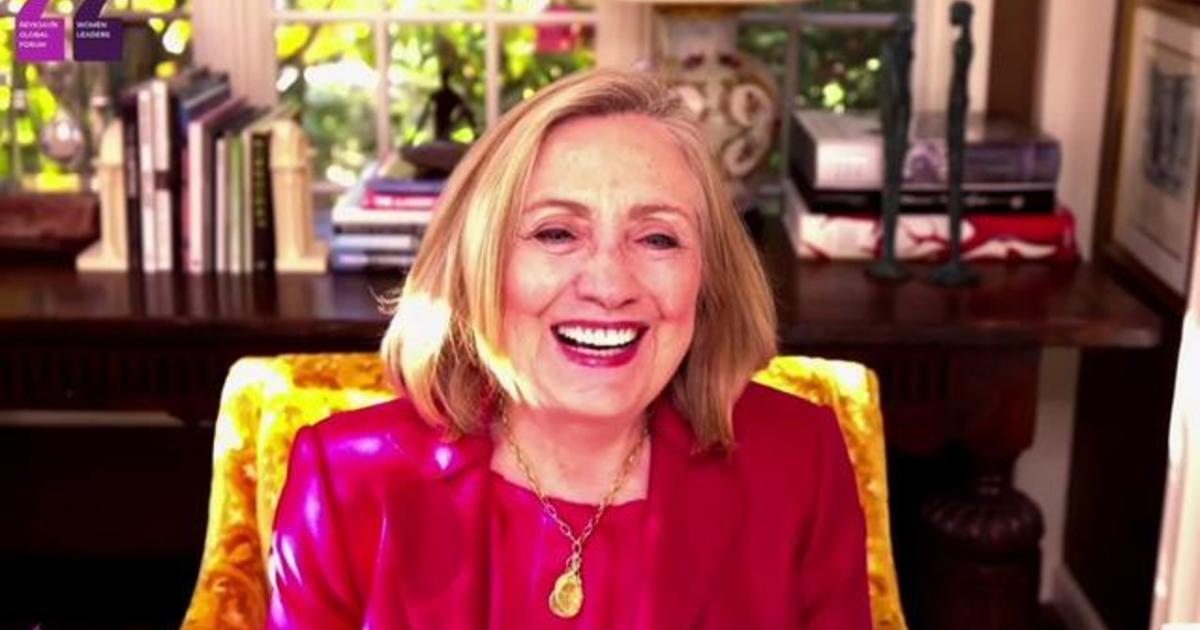Former Secretary of State Hillary Clinton expressed hope and relief following the projected victory of Joe Biden and Kamala Harris in the presidential election. In an interview taped Sunday for the 2020 Reykjavík Global Forum, Clinton said she is looking forward to seeing what the new administration does.
“I am feeling better than I have felt in four years,” Clinton told Melanne Verveer, the executive director of the Georgetown Institute for Women, Peace and Security. “I feel really happy and relieved, very grateful, excited about the team of Joe Biden and Kamala Harris, looking forward to seeing them take the office of president and vice president and bring our country together and get us back on the right track for the future.”
Harris becoming the first woman elected vice president in the United States is part of the progress Clinton hoped to see when she declared “women’s rights are human rights” in a speech at the United Nations Fourth World Conference on Women in Beijing in 1995.
Clinton told Verveer that in the past 25 years, progress on women’s equality has been made in some areas, including education and health care, but “major gaps persist.”
“The women’s paid labor force participation has stagnated globally and … it is going backwards now because of COVID-19 and many women leaving or being forced to leave the workforce,” Clinton said. “Although we’ve made some progress in business and government and politics, I think it’s fair to say that women are still largely left out of decision-making roles, from local governments to the very highest levels, which I’m excited to say is beginning to change in our country with the election of Kamala Harris.”
While laws and regulations have changed around the world with the goal of equity for women, more needs to be done to enforce them, Clinton said.
“The norms, the values, the deeply held biases that unfortunately are still so prevalent continue to hold women back,” she said.
She added that those norms “even work in a very perverse way” to cause women to hold themselves back, “to feel that they’re not good enough; they’re not smart enough; they’re not ready enough for a job, for a promotion, to run for office in a democracy; to stand up, to speak out for their rights and the rights of other women and girls.”
“So focusing on those norms, sort of pulling them out into the bright sunlight, making it clear that they are barriers, that they influence decision-making, so that people can actually come to grips with it, I think is going to be a major challenge for the media across the world that still likes to categorize women, put them into neat little boxes, focus on appearance and all the things which we know they do, but also for the public at large, as well as for governments and decision-makers,” she said.
